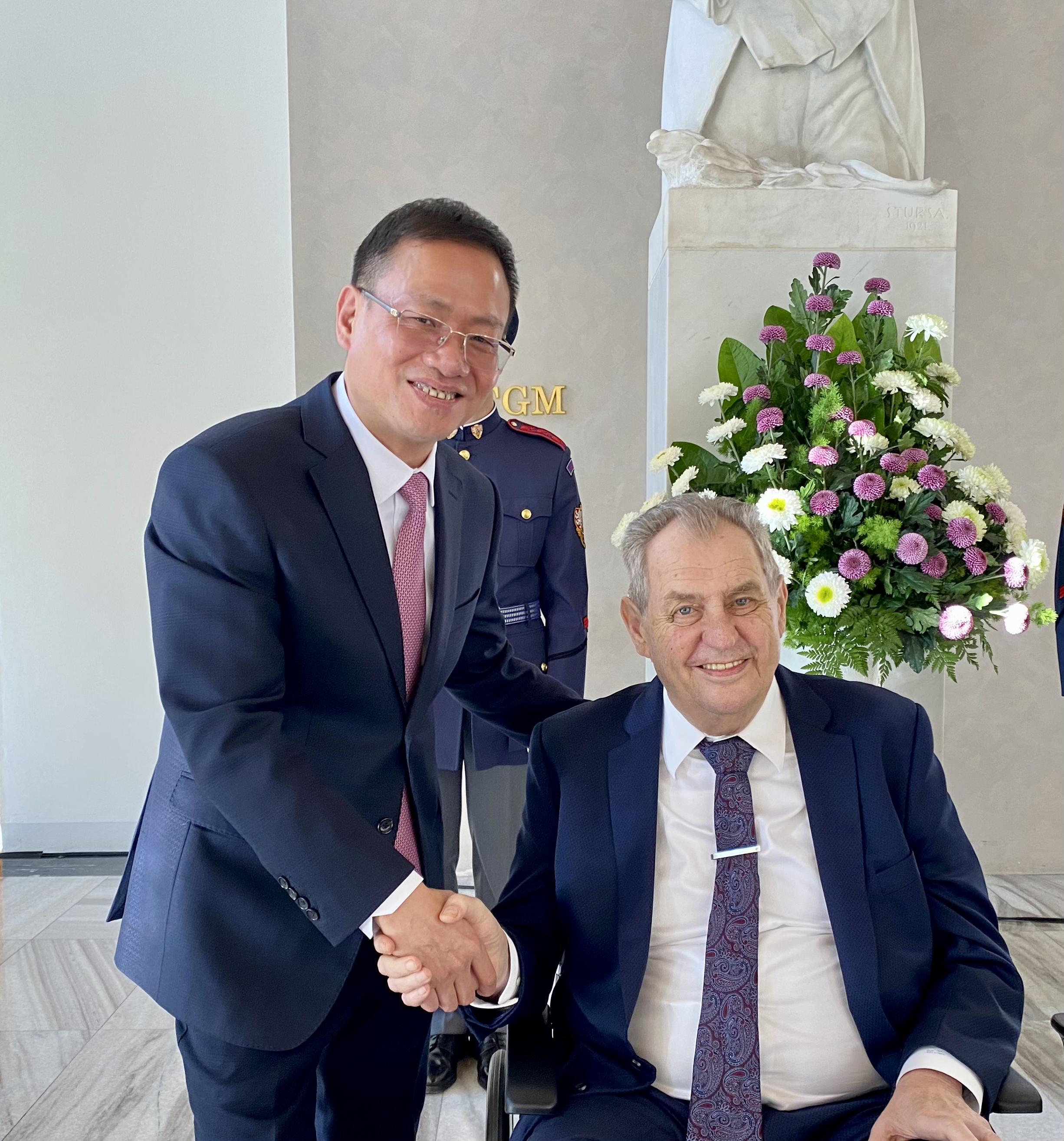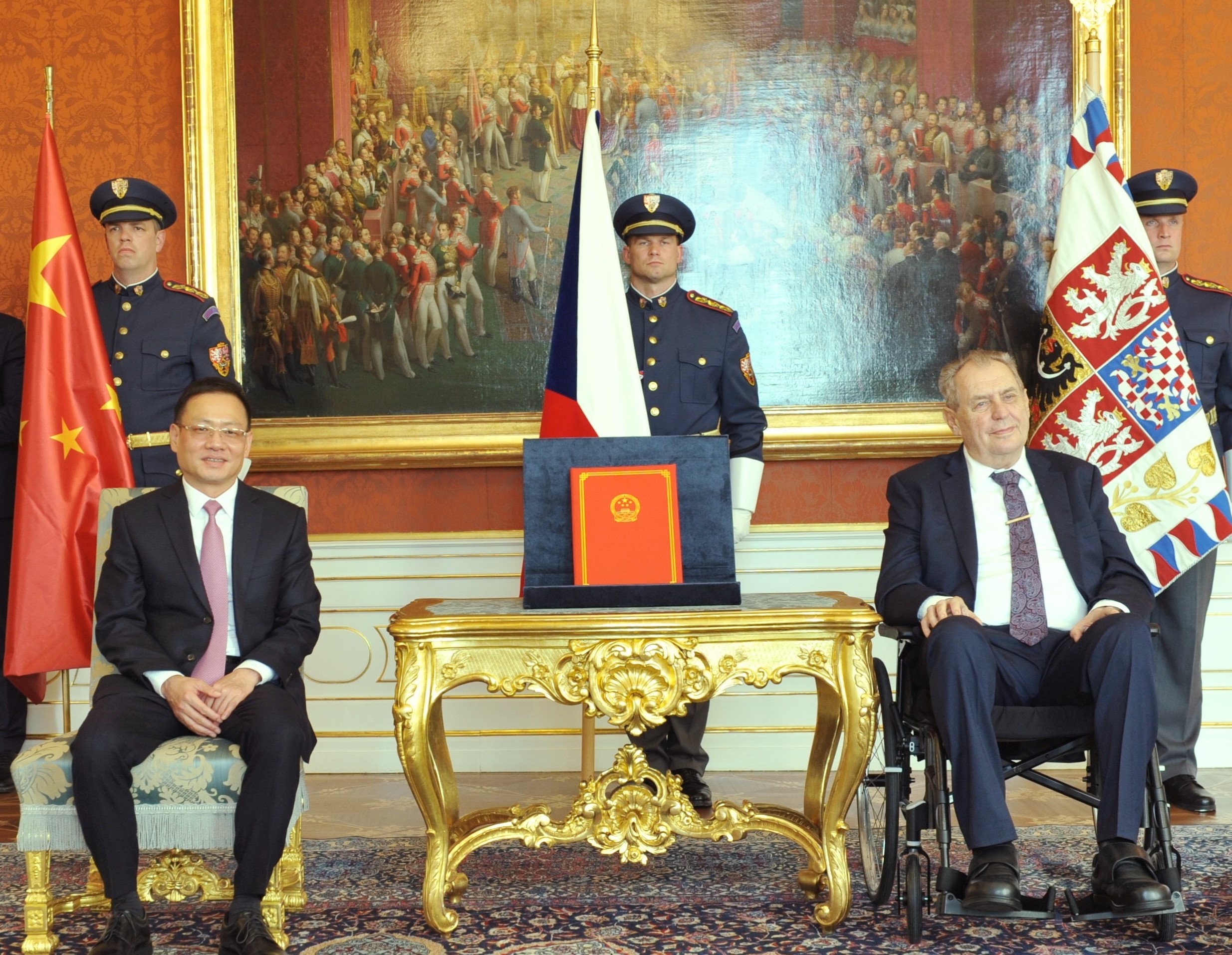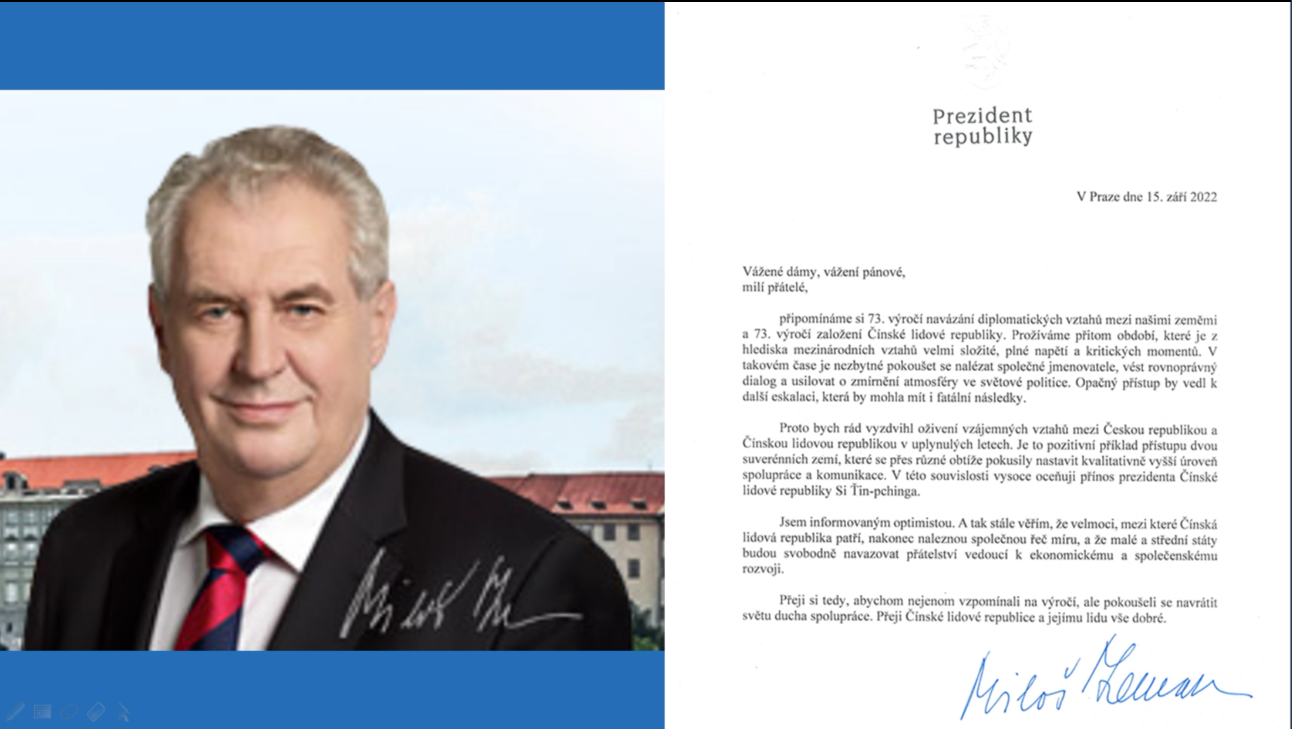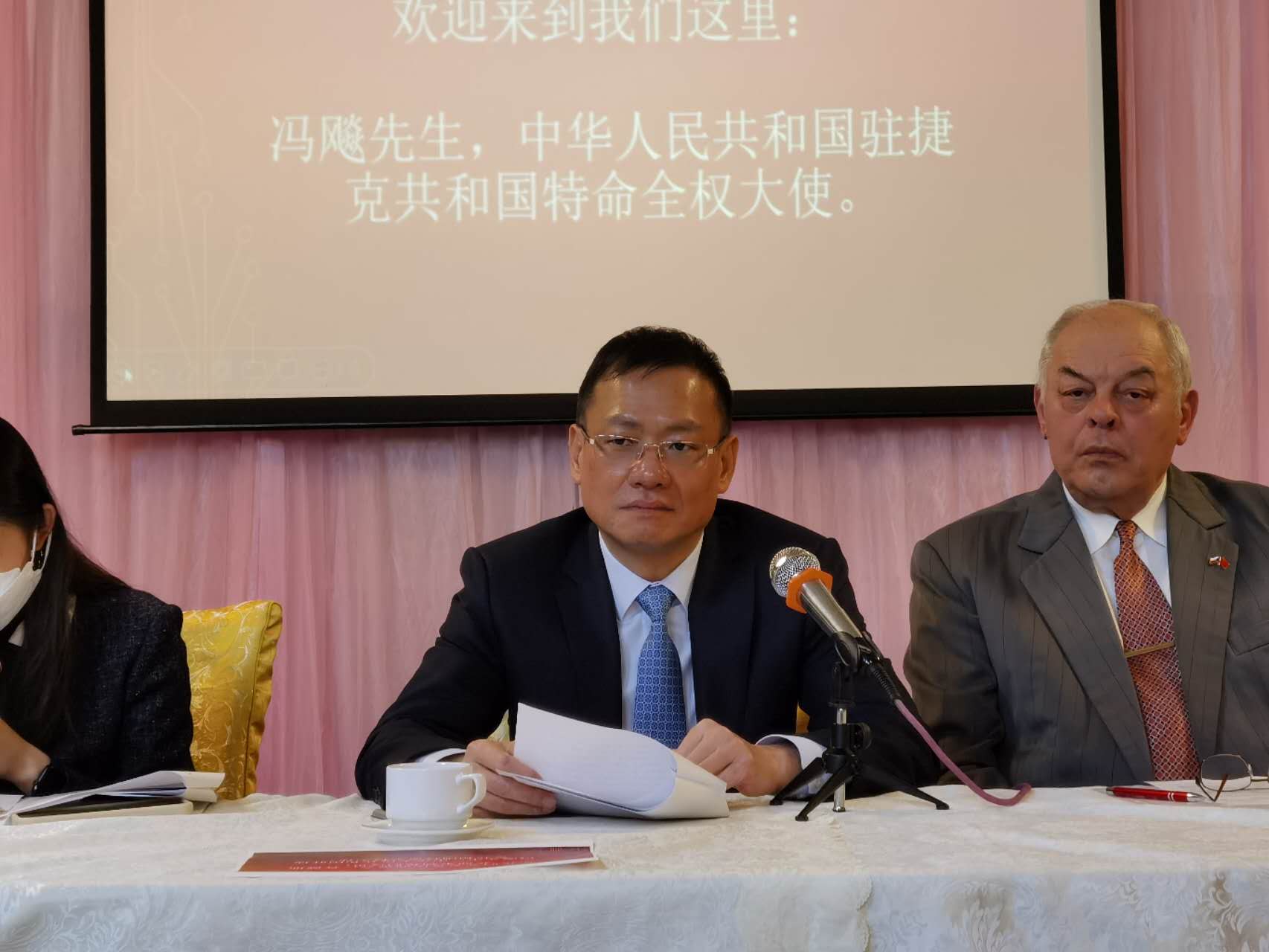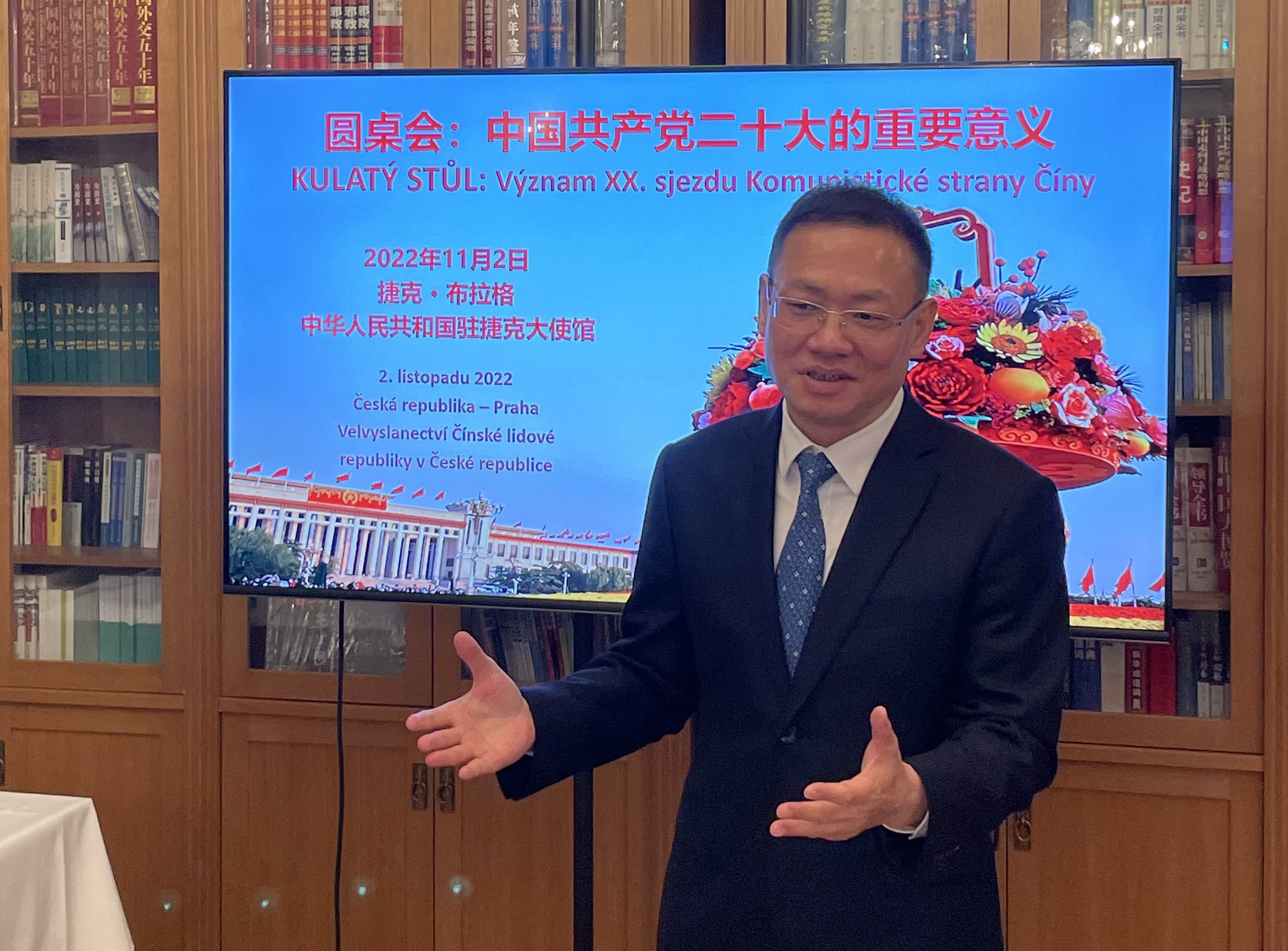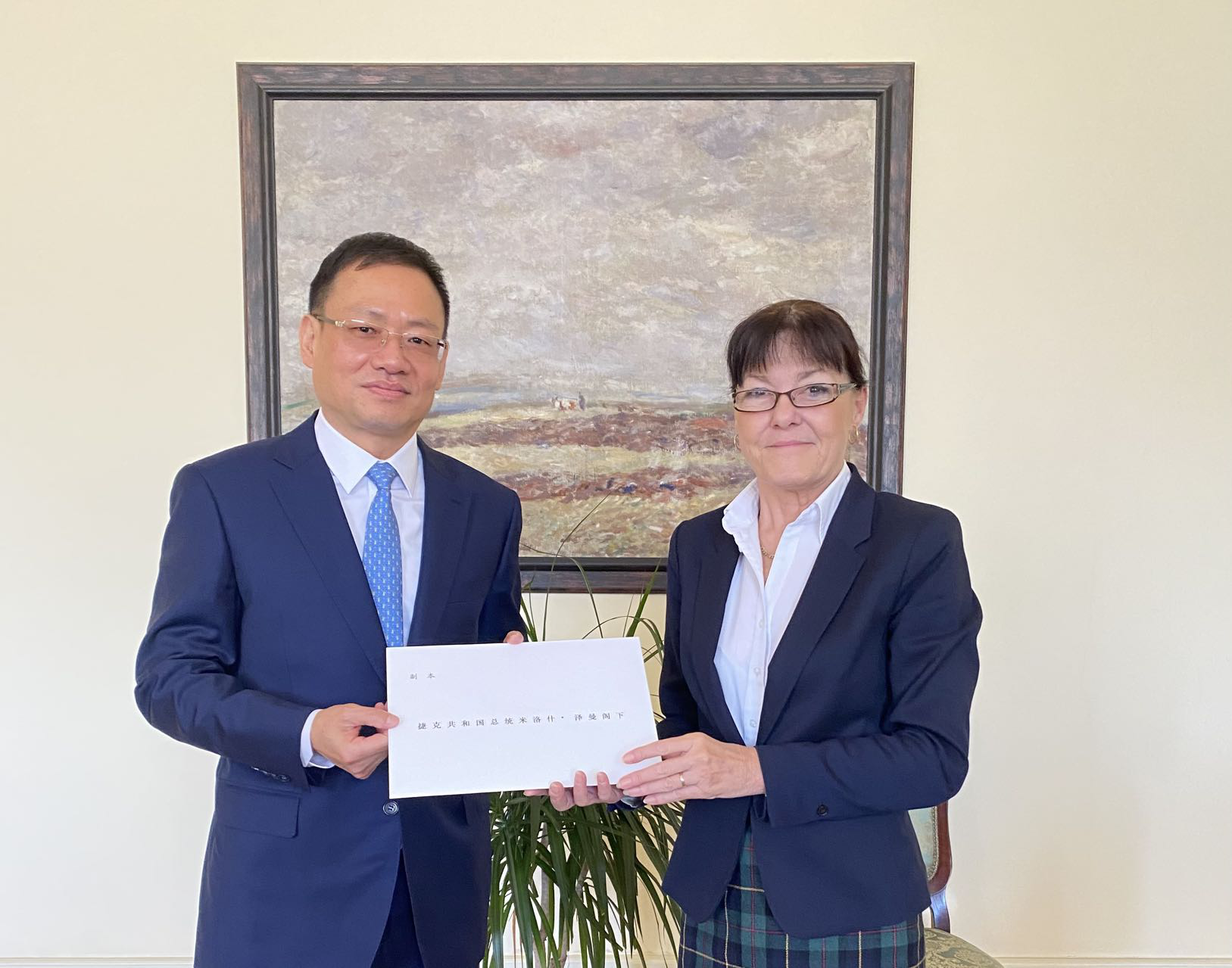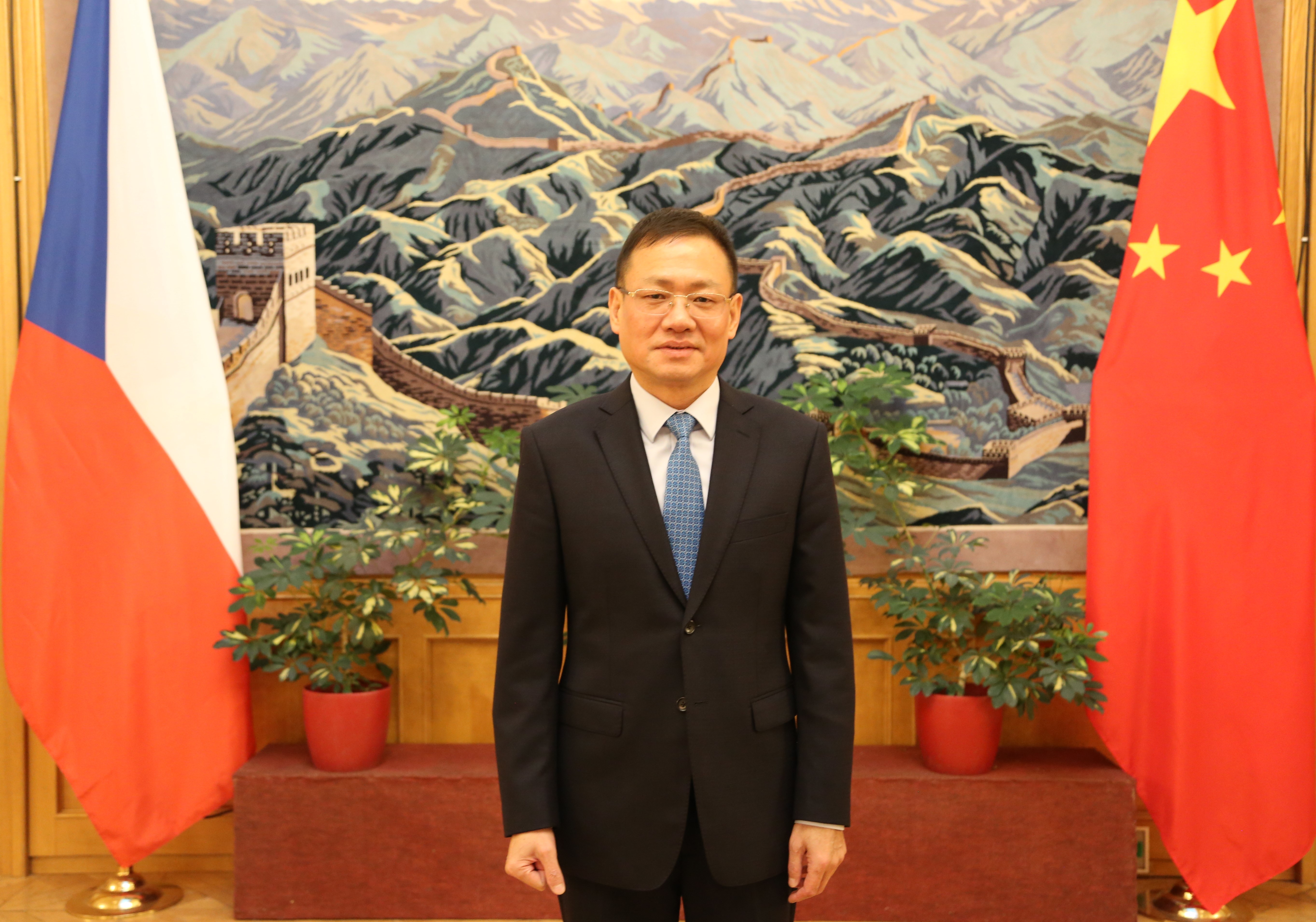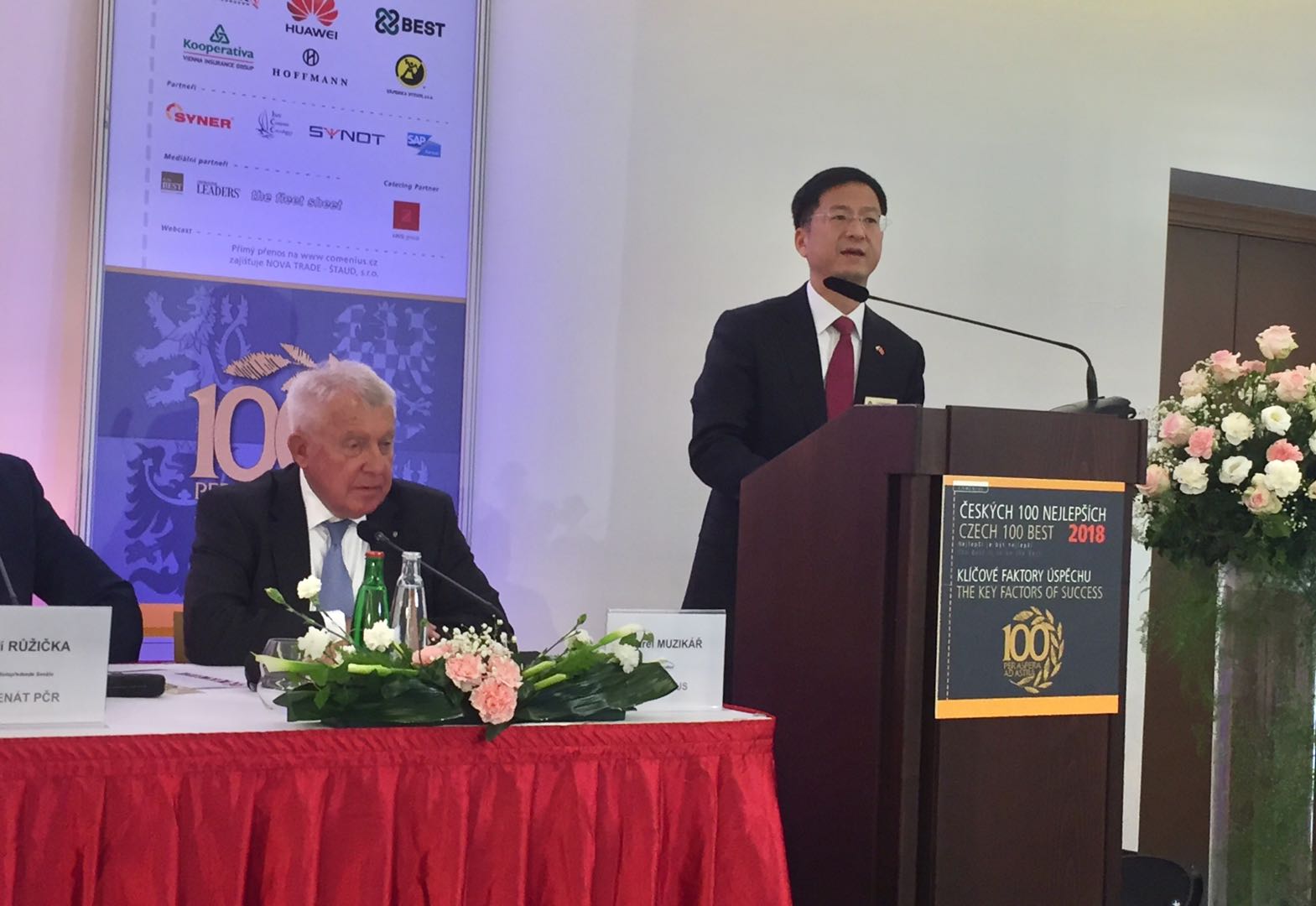| Remarks by Ambassador Zhang Jianmin at the Key Factors of Success Conference | |
| 2018-12-12 16:44 |
|
| Remarks by Ambassador Zhang Jianmin at the Key Factors of Success Conference 30 November 2018
Ladies and Gentlemen, Friends, Good morning! Let me start by thanking Mr. Muzikar for this wonderful opportunity to meet all of you here. I have learned a lot from the remarks of the previous speakers. As the Czech saying goes, good advice is better than gold. Their comments on this topic, Key Factors of Success, will be very helpful to me in performing my duties as the new Chinese Ambassador to the Czech Republic. I arrived in Prague a little over two months ago. I traveled via Vienna. As I boarded the plane to Prague, I saw many Chinese tourists. I even heard some of them talking in the dialect of my hometown. What a coincidence! I couldn’t help talking to them and soon found out that nearly all of them were retired workers who had signed up for a package tour of four countries in this region. Both my parents were workers at a textile mill in Hangzhou. I remember very well that when I was a little boy forty years ago, they hardly had any money left after buying food and paying the medical bill of my grandparents. Sometimes they even had to borrow from the mutual help fund set up by their factory. Tourism simply was not a word in their vocabulary at that time. So when I saw those Chinese tourists talking in joy and excitement, I said to myself, what an extraordinary journey! It is really these changes in the lives of hundreds of millions of ordinary citizens that speak volumes about the remarkable progress China has made as a country. But how does it come about? And what are the factors behind this success? Of course, there are many factors at play. In the interest of time, I would just talk about three, namely, commitment to reform and opening-up, confidence in our own path of development and cooperation with the outside world. First, China’s commitment to reform and opening-up. This year marks the 40th anniversary of the reform and opening-up program. According to President Xi Jinping, it is China’s second revolution, the first being the establishment of the People’s Republic in 1949. This second revolution has profoundly changed China and deeply influenced the world. Thanks to the vision of Chinese leaders and the implementation by the Chinese people, China has grown to be the second largest economy today. Its GDP has increased by 68 folds in four decades to exceed 12 trillion US dollars. 700 million of its population have been lifted out of poverty. China is now the world’s biggest exporter and the second biggest importer. For years, China has contributed over 30% of the world economic growth, making it the source of stability and driving force in global economic recovery. China has embraced globalization and integrated itself into the world community. It has acceded to the World Trade Organization, followed rules-based multilateral trading system, and deepened reform at home. Reform has not been without pain, but China has pushed through its reform agenda with strong resolve. Lots of people have made short-term sacrifice. For instance, in order to improve the efficiency of state-owned enterprises turning out products that had no market, many workers had to leave their posts. For quite some time, we were very careful not to use the word “unemployment”. They were out of job only temporarily, we thought. And hopefully, through training and with the improvement of efficiency, they could go back to their posts. In the end, some did and some didn’t. But in the process, we managed to put in place a sound social security system. This is also how we strike a balance between reform, development and stability. Second, China’s confidence in its own path of development. When I was studying international relations in London at the end of the 1990s, there was still much talk about the so-called “the end of history”. Fukuyama and many others believed then that there was no better alternative than liberal democracy, period. Hence, the end of history. But a couple of years ago, I came across one article in the Economist magazine, the July 6th, 2015 issue, to be exact, for I checked again last night. The article was entitled “Why it is taking so long to build another runway in London?” It said that “while Britain waits and wonders, airports are being built all over the world” and that “around 80 new airports (some with several runways) have appeared in China.” Actually the figure could be even higher if the article was written today. Construction of Beijing’s second international airport is in full swing. This new airport will be ready by the end of September next year. It will have four runways in the beginning and seven in the future, with a capacity to handle 100 million passengers a year. I am citing this example not to prove which system is better than the other. This is not my point. Each has its own merits and every road leads to Prague. What I want to say is that it is always important to find a system that suits one’s own conditions. There is no one-size-fits-all solution, especially when it comes to a country with a population of 1.3 billion. President Xi once said, “No one knows better where the shoe pinches than the one who wears it.” Very true. The path of reform and opening-up and the path of socialism with Chinese characteristics have served the Chinese people well. Our people are happy with the tangible benefits they enjoy in their everyday life. Just look at the tourist numbers. Last year, nearly 500 thousand Chinese tourists visited this country, and this year it is estimated that there will be over 600 thousand. And in case some of you don’t know the Chinese people well enough, let me tell you what we Chinese people are like: we save every penny at home, but we spend every dollar on the road. So there is no reason for us to change course. On the contrary, with the proven track record, we now have greater confidence in our path of development. I am not sure if it works elsewhere, but it does suit China well. It makes long-term planning possible, and it ensures policy continuity and consistency. And China’s door of opening-up will only be more and more open. And third, China’s cooperation with the outside world. You have just heard me say many nice things about my country. That is the job of an ambassador, isn’t it? But to be honest, China also faces many challenges. In today’s world, no country is able to solve all problems by itself, or stay immune to global hazards. Unilateralism and protectionism will get us nowhere. Everyone needs help from others to succeed and everyone is able to help others to succeed. China knows this very well. That’s why we are a strong advocate of win-win cooperation. When we just founded New China in 1949, Czechoslovakia was the fourth country to give our young People’s Republic diplomatic recognition and a vote of confidence. Moreover, we received valuable support from you in terms of machine tools, tractors, etc. We are very grateful for your friendship, and we cherish the value of cooperation. People here often say to me, “China is a big country.” Well, it really depends on what area you are talking about. As far as football is concerned, China is still very small. That’s why we deeply appreciate the help we get from the Czech Republic. Mr. Pavel Nedved, whom I met recently, is coaching some of China’s young players and promoting the sport in China. And Mr. Jagar is helping us with ice hockey, as we prepare to host the Winter Olympics in 2022. China, on its part, also wishes to make more contribution to the well-being of people of other countries. For this purpose, we have proposed to work together with other countries to build a community of shared future for mankind. That is the reason why we have put forward the Belt and Road Initiative. In essence, it is about connecting people more closely together for win-win outcomes. This is a Chinese proposal, but it is a joint endeavor with all other countries. We hope to synergize our respective development strategies and engage in fruitful cooperation for the benefit of our peoples. The recent China International Import Expo held in Shanghai is another example of China’s concrete action to cooperate with the rest of the world and uphold free trade and globalization. President Zeman led a strong Czech delegation there, and many trade and business agreements were signed. I could see that some of the companies are also here today. Skoda Auto, for instance. One in every four cars produced by Skoda is sold in China. The two presidents also had beer together at the Czech pavilion. I was present, and I wondered what it would be like if China reaches your per capita beer consumption level. If that’s too much, how about one fourth of your consumption? Anyway, there is huge potential in our cooperation. Before I conclude, I want to say that since I arrived, I have been asked by many Czech friends about my impression of Prague. “What do you like most here?”they would ask. My answer is, “What I like most are the bridges across the Vltava.” I grew up near the Grand Canal, which also has many bridges. I enjoyed walking along the river. Since I joined the diplomatic service, I served as an interpreter for many years, facilitating conversation between Chinese and foreign leaders. I was proud of my role in building the bridge of communication. And now, as Chinese Ambassador to the Czech Republic, I see my primary task as building a bridge of understanding and cooperation between our two countries and peoples. I hope I can count on your support. If all of us can work together, I am sure the bridge we build will be as strong and as popular as the Charles Bridge. Thank you very much. |
|
||||||||||||||||
| ||||||||||||||||
|
|
||||||||||||||||

